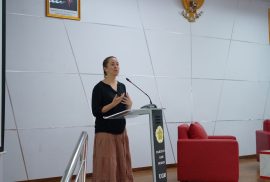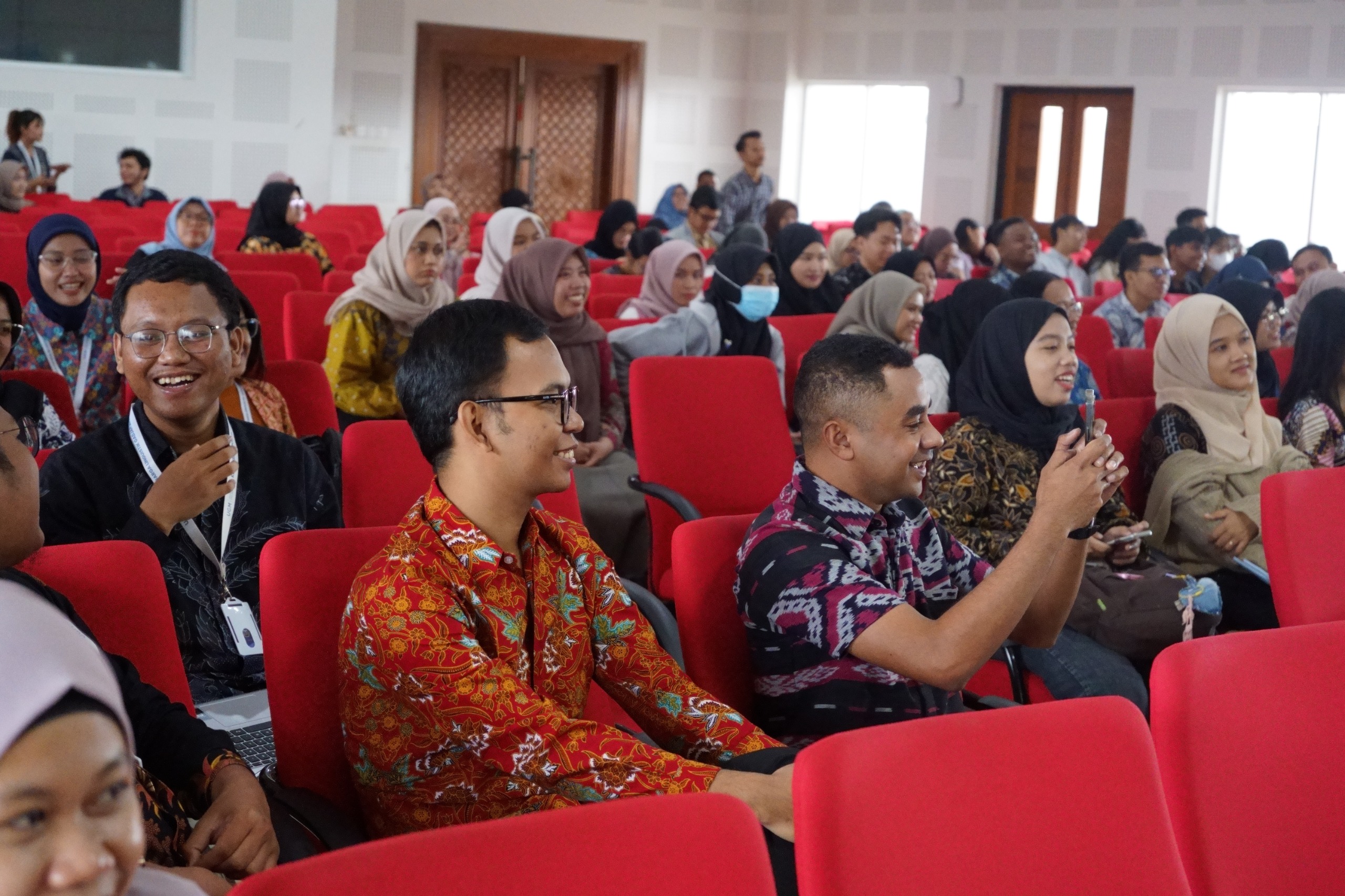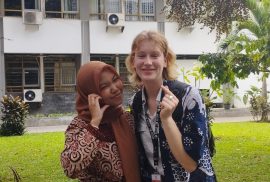Yogyakarta, 1/9/2025 – The Arabic Study Program, Faculty of Cultural Sciences, Universitas Gadjah Mada, has introduced an Entrepreneurship lecture led by Dr. Ir. Siti Andarwati, S.Pt., MP., IPU., ASEAN Eng. The lecture is designed to provide students with entrepreneurial insights focused on fostering innovative, impactful, and sustainable mindsets.
In its opening lecture, students were introduced to the scope of entrepreneurship, the urgency of cultivating young entrepreneurs in Indonesia, and their role in driving national economic growth. Referring to data from Statistics Indonesia (BPS), the lecture highlighted how the limited availability of formal jobs must be balanced with the creation of new business opportunities, particularly among the younger generation.
The class also emphasized the philosophical differences between entrepreneurship and wirausaha (sociopreneurship). While entrepreneurship is often rooted in Western individualistic philosophy, the Indonesian concept of wirausaha underscores harmony between individual and community, aiming for broader social benefits.
Students were further equipped with knowledge of entrepreneurial psychological profiles, including self-confidence, results orientation, risk-taking, and future-oriented thinking. The Plan-Do-Check-Action (PDCA) cycle was introduced as a key strategy for building consistent and sustainable business practices.
As part of the interactive session, students worked in small groups to develop and present business ideas, focusing on identifying market opportunities, crafting business plans, and showcasing product innovations. These activities were designed to sharpen their teamwork, problem-solving, and presentation skills while encouraging creative thinking.
Through this course, Arabic Study Program students are expected to cultivate creative and innovative mindsets while viewing entrepreneurship as a meaningful path to contribute to sustainable development. The program also supports the achievement of the Sustainable Development Goals (SDGs), particularly SDG 4 (Quality Education), SDG 8 (Decent Work and Economic Growth), and SDG 9 (Industry, Innovation, and Infrastructure).
Author: Muhammad Ardiansyah







